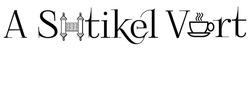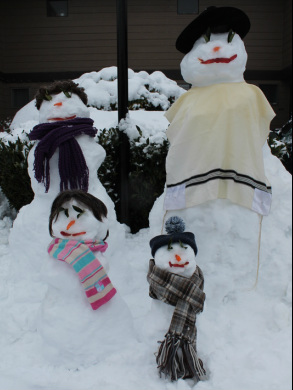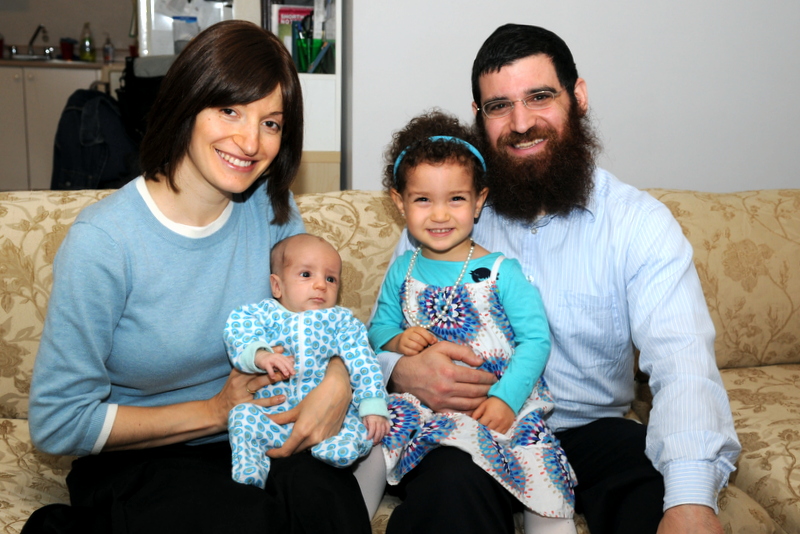So naturally I knew it was only time until my visit came knocking at our door. Hey, we're a family, we go through everything together. It wouldn't be fair if everyone had their share of medical emergencies and I was left out. And being someone who strives to live life to the max also comes with the added component of when I have a low, I have a real low. So when emergency strikes in my life, boy does it come in full gear. I was admitted in the ER with complaints of a majorly swollen abdomen. I looked like I was 5 months pregnant, which would have been awesome had I been pregnant. But unfortunately, I couldn't attribute the bloating to that. Or to a scrumptious steak and mushroom rice pilaf from the previous night. Remember, we are on a special allergy elimination (read: bland) diet. Or as I like to rename it, a special food program, as I don't want my daughter to even come close to the word diet.
The hospital ran every possible test. I could see the concern in the doctors' and nurses' eyes. I had the best care modern medicine could offer. Extensive blood work and analysis, abdominal xray, ultrasound, CT scan, chest xray. And everything came back inconclusive. But my stomach was distended, and my WBC was elevated. "Hmm," the doctors scratched their heads, "we're not quite sure what this is. We see the young woman is in a lot of pain, and the symptoms are there. But we have no idea." And so they attempted to treat the pain, which offered limited options, given that I was still nursing my son. Plus, I vehemently dislike taking medication (I can't remember the last time I took a Tylenol) and so the story went like this "Take some of this to ease the discomfort. No thanks. But you're in pain. That's okay, I'm coping. But we want to help you. No worries, I'll manage." And after about eight hours, they eventually stopped asking.
Last week, I had attended a wonderful class at my Synagogue given by the inspirational Rebbetzin Chanie Baitelman. The class was part of the Women's Rosh Chodesh Society and discussed the various fruits of the seven species and how they reflected our inner beauty. It was in preparation for Tu B'shvat, a holiday that celebrates the birthday of trees, and the growth of blossoms, fruits, grains, and vegetation. In fact, although some may consider it an insignificant holiday, it is one of my favourites. I am at outdoorsy kind of gal; I enjoy being in nature. I love the open space, the fresh air, and lively colours. I find tremendous satisfaction in celebrating our dear green companions, who bring many benefits to the world (just read the book Dear Tree and you'll find out all about what they offer us).
So you can imagine my sadness at how my hospital visit left me with little time to prepare for Tu B'shvat. I wanted to organize some games, stories, and treats for my family to enjoy while celebrating. My friend and I were planning on doing a wonderful craft with our daughters involving huge beautiful leaves that I found lying on the sidewalk on my walk last week, and we wanted to teach the girls about seeds and give them the opportunity to plant their own flowers in a uniquely decorated planter. All of that was put on hold. No Tu B'shvat party. No leaf craft. And no planters.
I was left with the choice to moan and fret about my lonely experience in the hospital or to put a smile on my face and move forward. I chose the latter option. I met a wonderful nurse named Sam and when she heard me decline the morphine because I was nursing, and so she casually mentioned that she just got off maternity leave. She had a beautiful one year son, and being a first time mom, she relished in the opportunity to vent and share her stories with a more experienced mom. I chuckled at her compliment, being that I in no realm see myself as a motherhood expert, but I didn't want to crush her dreams. So I listened to her share her experiences about nursing, sleep battles, teething, nap time, routines, and solid foods. We spoke (or rather, she spoke) for fifteen minutes and I could tell she enjoyed being heard and acknowledged in one of the most difficult roles we as women face: motherhood.
So it got me thinking about the class on Tu B'shvat. We are what we eat. And so we eat foods that are healthy not just for our body, but for our mind, heart, and soul. We learned about the differences between wheat and barley. One of which is that wheat symbolizes refinement and transcendence and barley reflects necessity and vitality. Barley may be a healthy option, but the symbolism of wheat is that we can rise above our situation and reach our potential by refining our character traits and embracing new ways of being, responding, and coping. I wondered to myself, maybe that explains why I am very much a carbs fan. I must have carbs, and preferably wheat, with each and every meal to keep my energy up. Yet, I have an aversion, and possibility a food sensitivity, to barley. While I recognize the importance of being grounded, I want to rise above my limitations and soar towards the tallest of the trees.
So in the hospital, while I wasn't able to eat anything or drink any liquids until a diagnosis was made (thus ensuring that I would be read to go into surgery at any moment), the thought of wheat didn't leave me hungry. Rather, it left me inspired and invigorated. I wound up in the hospital this week not because of my physical ailment but for a transcendent reason. I was present to listen to the kind nurse share with me what was on her mind, and so that I could put a smile on the faces of all the patients, nurses, doctors, and technicians I encountered. In the end, thank G-d, my diagnosis was not serious, and a simple dose of medication was all I needed to get back in tip top shape and leave a lasting smile on my face and bounce in my step.
Wishing you and yours a transcendent Shabbos,
Ettie Shurack





 RSS Feed
RSS Feed
